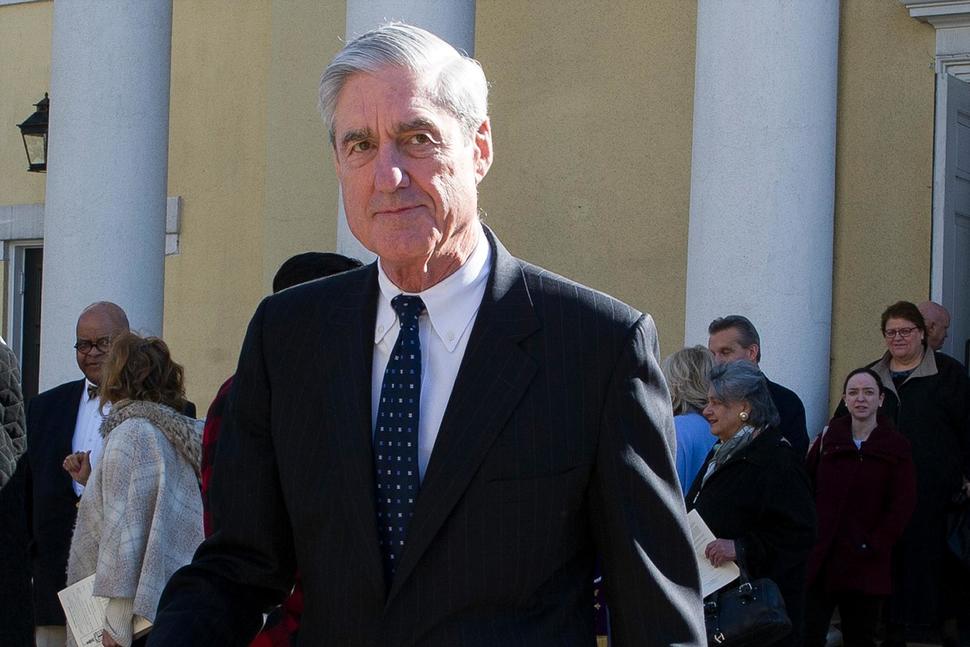What to Expect in the Mueller Report

The Justice Department announced Wednesday it would hold a Thursday morning press conference at 9:30 a.m. in conjunction with the release of special counsel Robert Mueller’s report detailing the findings of his nearly two-year Russia investigation, but further details on how or when the report would be released have been sparse.
Attorney General William Barr is set to take questions at 9:30 a.m. about the release of the nearly 400-page document detailing the results of Mueller’s inquiry into possible collusion between the Russian government and President Donald Trump’s election campaign, as well as potential obstruction of justice by the president.
The Justice Department has been tight-lipped about how exactly the report will be distributed. A redacted version is expected to be shared with Congress as well as made available to the public in a digital format. Letters sent last month by Barr to congressional leaders concerning the report were posted to the special counsel’s page on the Justice Department’s website, as were indictments and guilty pleas related to the Mueller investigation.
Unusually, Attorney General William Barr informed Congress that the report will contain color-coded redactions rather than the typical black blocks normally used to shield text from view. Each color is expected to reflect a different category of information being withheld from view: information related to grand jury proceedings, which are secret; information that could reveal sources and methods used in ongoing intelligence work; information that could interfere with ongoing prosecutions; or information that “implicates the privacy or reputational interests of peripheral players where there’s a decision not to charge them,” Barr told lawmakers in a hearing earlier this month.
That final set of redactions will only apply to “people in private life, not public office holders,” Barr noted at the hearing, apparently indicating that the interest of protecting Trump’s reputation will not be sufficient to redact a portion of the report.
The report’s contents have been the source of intense speculation, particularly since Barr’s first letter, sent March 24, summarized Mueller’s top findings that investigators “did not establish that members of the Trump Campaign conspired or coordinated with the Russian government in its election interference activities.”
Mueller was more equivocal about whether Trump committed obstruction of justice, finding that “while this report does not conclude that the President committed a crime, it also does not exonerate him,” according to Barr’s letter, which attributed the statement directly to the special counsel.
The document is the culmination of an investigation carried out by 12 federal prosecutors – veterans of the Justice Department and high-powered law firms – and dozens of investigators, who together interviewed more than 500 witnesses, executed another 500 search warrants, issued nearly 3,000 subpoenas and contacted 13 foreign governments. That effort produced criminal charges against nearly three dozen people and three companies, including the president’s one-time national security adviser Michael Flynn, his former campaign manager Paul Manafort and his erstwhile longtime lawyer and confidant Michael Cohen.
The report’s release, however, is not expected to be the final word on the investigation – and, rather, is expected to inflame ongoing debate about the scope of the report, how its conclusions were presented and interpreted, and the central questions of Trump’s conduct during the election and his actions after the special counsel’s investigation was launched in 2017.
Rudy Giuliani – Trump’s lawyer and the former New York City mayor – has reportedly already drafted a so-called “counter-report” of some three-dozen pages. Democratic lawmakers, meanwhile, have continued calling on Barr to share with them a full, unredacted version of the report, which the attorney general has so far declined to do. The Democratic-led House Judiciary Committee last week granted its chairman, Rep. Jerrold Nadler, D-N.Y., to issue a subpoena for the full report. Nadler may issue the subpoena as soon as Friday, a spokesman reportedly said.
Other state and federal investigations sparked by Mueller’s probe are also continuing to play out, including inquiries into hush-money payments paid to women who had affairs with Trump, funding sources for and spending by the president’s inauguration committee, real estate deals and taxes.
